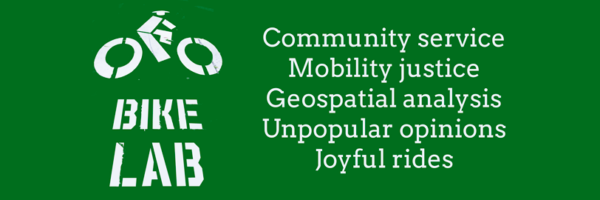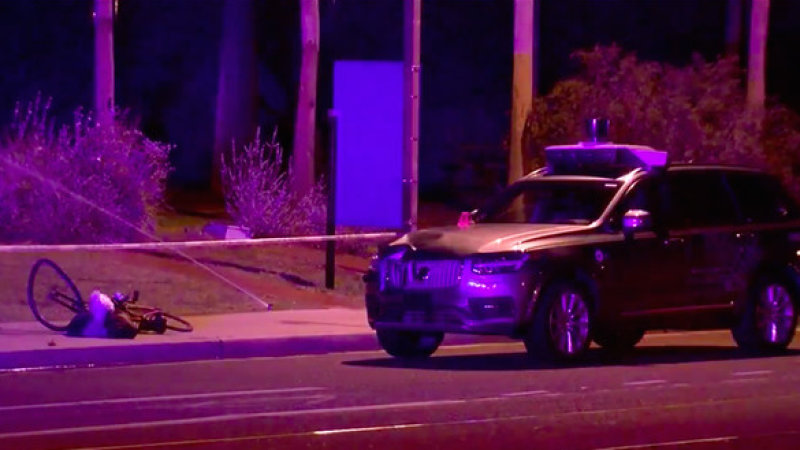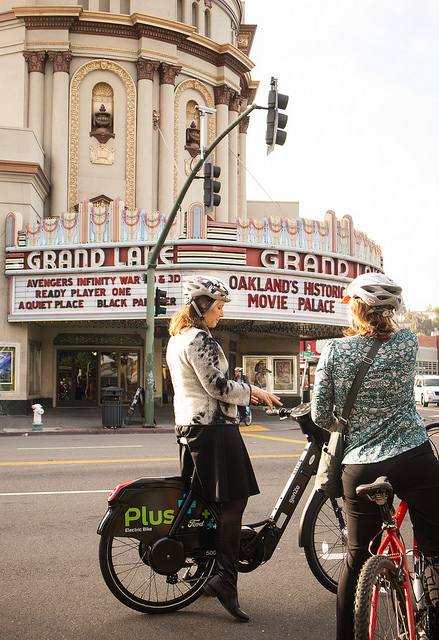I recently visited a friend in Puerto Rico, my first time on the island, and was surprised at just how pervasive car culture is there. Public transit is virtually non-existent (there aren’t even inter-city buses), as is biking for transport; bike mode share in San Juan is 0.6%, and drive-alone is 71%. The two towns where we spent the most time, Jayuya and Isabela, both reported zero bicyclists in the 2017 5-year ACS estimates (and drive-alone rates above 85%).
Our friends own a decent car, and were proud to drive us around Jayuya and to tourist destinations on the coasts. When we’d suggest that we might walk the quarter-mile into town, or wander the streets of Ponce or Isabela, they were genuinely mystified. Why would you do that? We have a car, we can drive you!
Isabela has a separated bike/walk path called the Paseo Lineal, which connects the town center with the hotels and beach bars along the coast. Some of its four miles run along the main road, and other parts wind through the tidal marshlands on pavement or boardwalks, with a very limited number of intersections. It’s quite nice even by mainland standards.
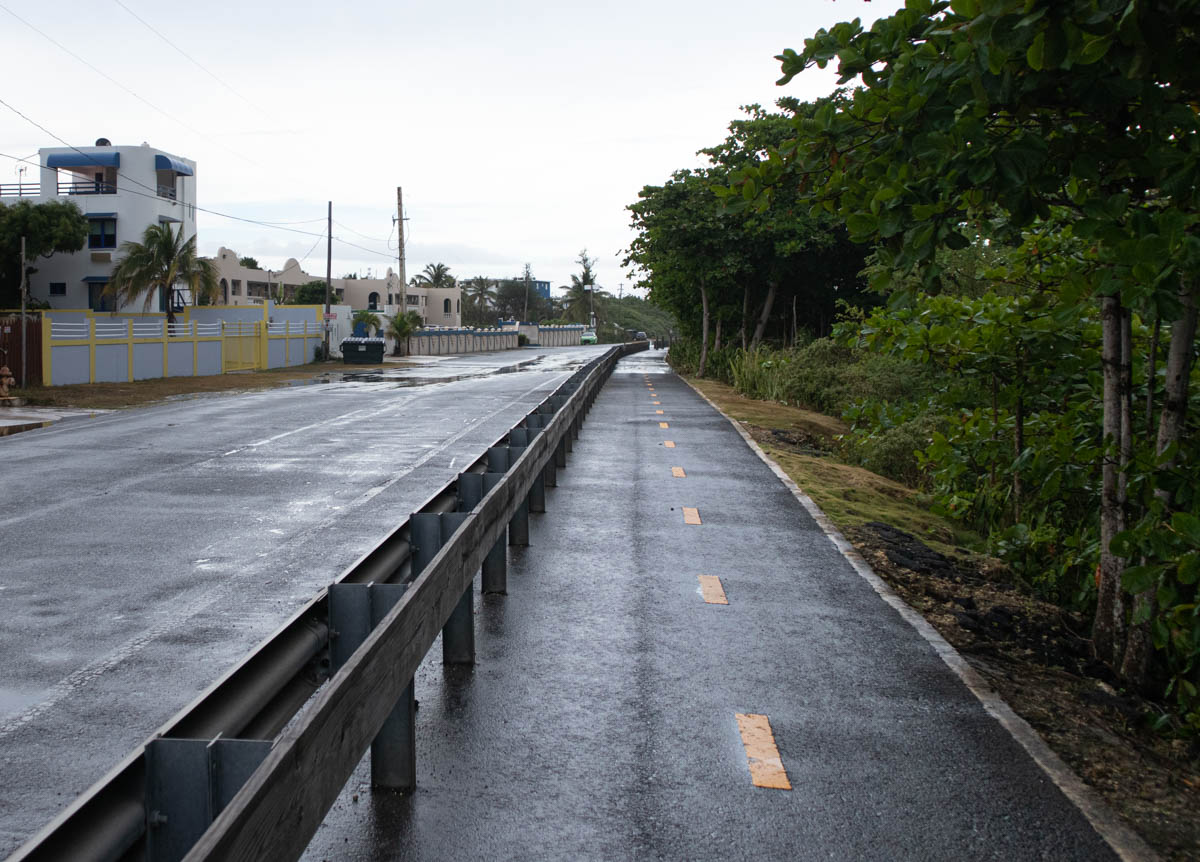
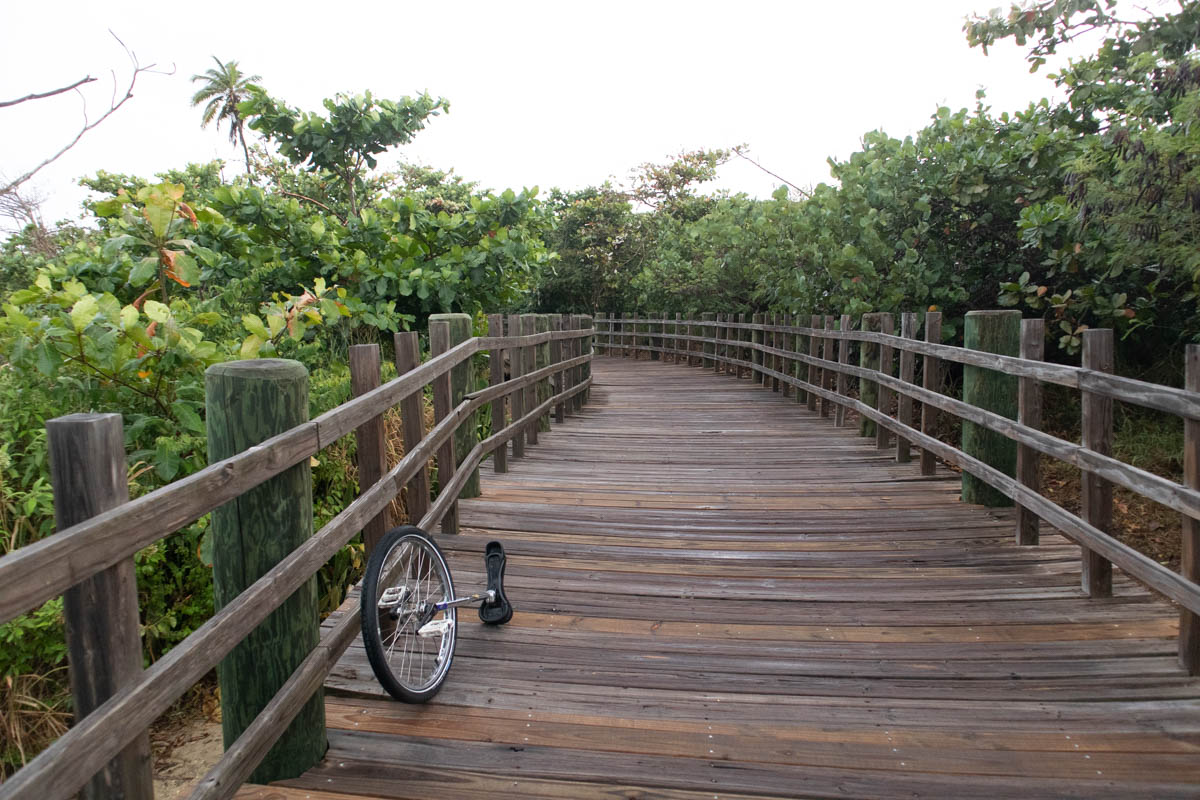
When I rode it on a pleasant Thursday afternoon, I saw only two other cyclists (a tourist father with his young daughter). Our friends remained confused as to why I would want to ride home from the beach rather than be in their car.
Cultural divides have two sides, and the Bike Lab works to examine what’s going on over here.Bike advocacy often asserts that the primary barrier to cycling is lack of infrastructure, but here in Puerto Rico is an example of a model piece of infrastructure that has generated apparently no movement towards bike commuting. There’s a similar facility in Old San Juan that appears similarly deserted.
Just as my Puerto Rican friends cannot comprehend that I prefer to ride or walk, American bike advocates find it difficult to understand that many people simply prefer to drive, particularly people from cultural backgrounds where driving is a status symbol. In Isabela, bike facilities will remain empty unless there is substantial cultural change. And there is scant evidence that concrete and paint change culture.
